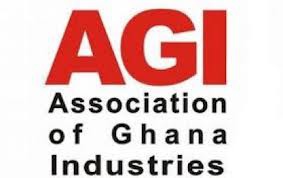
Dr Yaw Adu-Gyamfi Vice President of the Association of Ghana Industries (AGI) on Monday said Ghanaian Small and Medium Enterprises (SMEs) are ready when given the necessary governmental support to help tackle unemployment as well as stabilize the economy.
He said SMEs are more than qualified to turn around the economic turmoil of the nation if given the needed push from government.
Speaking at an International Labour Organisation (ILO) breakfast meeting of Chief Executive Officers in Accra, Dr. Adu-Gyamfi, who doubles as the Chief Executive Officer (CEO) of DANADAMS pharmaceuticals, said such support would enable industries to contribute its quota to ensure the stabilization of the Cedi.
Dr. Adu-Gyamfi said Ghanaian SMEs are not against foreign competition, but simply want support to be able to compete with foreign firms.
According to him, if government supports about five to 10 pharmaceutical companies to expand and produce efficiently around 70-80 per cent of the nation’s medicinal needs, it could save the country about US$1billion per annum in import expenditure.
Additionally, if these firms are able to provide about 30 per cent of the pharmaceutical needs of the over 200-million ECOWAS population, that could also earn Ghana US$3billion per annum.
“We are willing to be part of the competition if we are given the opportunity. All we are saying is that we can and are ready to make a difference. All we want is for government to listen to us.
“We can only create jobs when our companies are given opportunities. Ghana is blessed and we must take advantage of the opportunities. If government can give support to industries, we can bring foreign exchange to Ghana. We are ready and can do it,” he said.
Deputy Finance Minister, Mrs Mona Quartey, said government was committed to improving the economic environment with various policies and plans and added that “Government is committed to creating an improved business environment as well as re-positioning the state to pro-actively deliver support to the private sector.
“Government is also committed to providing the appropriate support, platform and enabling environment for businesses to improve competitiveness in the global market.
“To this end various stimulus packages, tax incentives and the continuation of a wide range of reforms, aimed at developing and deepening the financial sector are being carried out,” she said.
Deputy Minister of Employment and Labour Relations, Baba Jamal, said the demand for SCORE (Sustaining Competitive and Responsible Enterprise) training was increasing and development partners, such as the Norwegian Development Cooperation (NORAD) and the Swiss Secretariat for Economic Affairs (SECO) had agreed to fund the second phase of the programme for five more years.
He encouraged SMEs to take advantage of existing interventions to make conscious efforts to grow their businesses, while paying particular attention to decent-work deficits and systems that purposefully and gradually migrate SMEs from the informal to formal economy.
Deputy Minister of Trade and Industry, Mr Kweku Ricketts-Hagan, noted that developing a strong, coherent, transparent and supportive policy on entrepreneurship needs a comprehensive consultative exercise on the topic, which will inform an entrepreneurial policy in the foreseeable future.
“The opportunity for our SMEs to succeed and grow underpins our future potential for increased employment, growth and prosperity,” he said.
Mr Kwamina Amoasi-Andoh, National Project Manager at the ILO SCORE Ghana Office, said the 50 enterprises, which have implemented their improvement plans had recorded very remarkable progress in their operations.
“Some of these improvements include high financial savings, efficiency in raw material usage and waste reduction by 18 per cent, improvements in workers’ attitude to work, improvements in management’s attitude to workers, achievement of an enjoyable workplace through effective workplace cooperation, and increase in employment by 5 to 50 per cent.”
According to him aluminium factories producing cookware, hollowware, roofing sheets, frames and panels can become the main suppliers to the ECOWAS region and the rest of Africa, and this can earn the country US$500million annually.
He added that, water processing companies, a major employer of labour in the last five years, can produce high-quality processed water for export with the potential to earn at least US$100million per annum.
The CEOs, who attended the breakfast meeting, were those trained in the ILO’s Sustaining Competitive and Responsible Enterprise (SCORE) programme – a global initiative, aimed at improving productivity and working conditions of SMEs through better workplace cooperation.
The meeting was under the theme: “Developing SMEs for Employment Creation: The Role of Government and the Private Sector”.
The SCORE’s curriculum contains five modules: workplace cooperation, quality management, cleaner production, human resources management and occupational safety and health.
The global SCORE programme currently runs in seven emerging economies covering different manufacturing industries. The Ghana project has begun implementation of the second phase with plans to make the programme sustainable beyond ILO funding.
The SCORE training has shown that if these companies are supported, then foreign exchange will be generated, many people will have more jobs and we will be able to accelerate economic growth in the country.
Through this programme, managers have been trained and we need the support of government to replicate the SCORE programme in other regions.